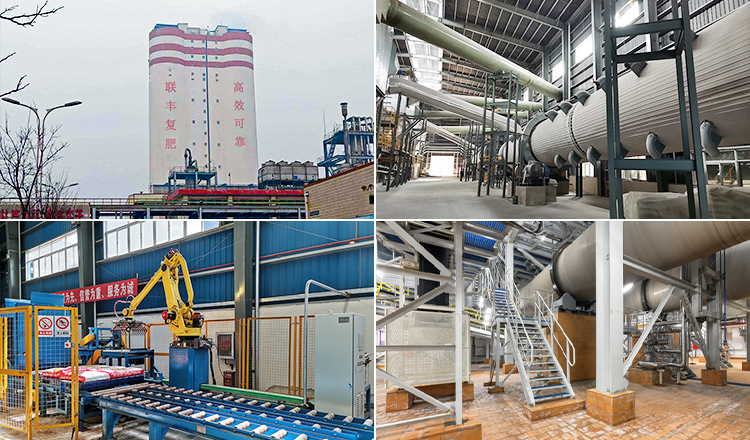
Aug . 20, 2024 22:12 Back to list
Top Organic Fertilizers for Growing Healthy Vegetables in Factories
The Best Organic Natural Fertilizer for Vegetable Farms
The demand for organic produce has surged in recent years, leading to an increased focus on sustainable farming practices. Among these, the use of organic natural fertilizers has gained prominence in vegetable cultivation. These fertilizers not only enhance soil health but also ensure the growth of vibrant and nutritious vegetables. This article explores some of the best organic natural fertilizers for vegetable farms, their benefits, and how to utilize them effectively.
Understanding Organic Natural Fertilizers
Organic natural fertilizers are derived from natural sources and contribute to the ecological balance of the farming environment. They improve soil structure, enhance microbial activity, and provide essential nutrients to plants over an extended period. Unlike synthetic fertilizers, which can lead to soil degradation and pollution, organic options promote sustainable farming practices.
Popular Types of Organic Fertilizers
1. Compost One of the most popular organic fertilizers is compost, created from decomposed organic matter such as kitchen scraps, yard waste, and other biodegradable materials. Compost is rich in nutrients and beneficial microorganisms, which help improve soil fertility and structure. Applying well-aged compost to the soil enhances moisture retention and promotes healthy root development.
2. Manure Animal manure, such as cow, horse, chicken, or sheep manure, is another excellent organic fertilizer. It is high in nitrogen, phosphorus, and potassium—three essential nutrients for plant growth. However, it is crucial to properly compost manure before use to eliminate pathogens and reduce the risk of burning plants due to its high nitrogen content.
3. Bone Meal Bone meal is made from ground animal bones and is an excellent source of phosphorus, which is vital for root development and flower production. It is particularly beneficial for vegetables that produce flowers and fruits, including tomatoes and peppers. When using bone meal, it is best to mix it into the soil a few weeks before planting.
4. Fish Emulsion Fish emulsion is a liquid fertilizer made from processed fish remains. It is rich in nitrogen and other trace elements that promote rapid plant growth. This organic fertilizer is ideal for leafy green vegetables, as it encourages lush foliage. Fish emulsion can be diluted with water and applied as a foliar spray or directly to the soil.
best organic natural fertilizer for vegetables factories

5. Seaweed Extract Seaweed is packed with minerals and vitamins that support plant growth. Seaweed extract is available in both liquid and powdered forms and can enhance plant resilience against disease and environmental stress. It also helps improve soil health and increases nutrient availability, making it a fantastic addition to any organic vegetable farm.
Application Guidelines
When utilizing organic natural fertilizers, it’s essential to apply them correctly to maximize their benefits. Here are some general guidelines
- Soil Testing Before adding any fertilizers, perform a soil test to determine nutrient deficiencies and pH levels. This information helps tailor your fertilization strategy to the specific needs of your vegetables.
- Timing Apply organic fertilizers during the growing season when plants need nutrients the most. For compost and manure, incorporate them into the soil before planting. For liquid fertilizers like fish emulsion or seaweed extract, follow the recommended dilution rates for the best results.
- Quantity Use organic fertilizers in moderation. Over-fertilizing can lead to nutrient runoff and environmental harm. Always follow the recommended application rates based on your soil’s needs and the specific requirements of the vegetable crops you are growing.
Conclusion
Utilizing the best organic natural fertilizers is crucial for successful vegetable farming. By choosing the right types of organic fertilizers, farmers can enhance soil health, promote plant growth, and ensure the production of high-quality, nutritious vegetables. Emphasizing sustainability not only benefits our health but also contributes to the overall well-being of the planet. As the organic farming movement continues to grow, so does our understanding of the importance of nurturing our soils naturally and ethically.
-
Premium Organic Manure Compost for Eco Gardens
NewsAug.01,2025
-
Organic 10-10-10 Fertilizer | Balanced Plant Nutrients
NewsJul.31,2025
-
Premium Amino Acid Fertilizer | Rapid Plant Growth Booster
NewsJul.31,2025
-
10 10 10 Fertilizer Organic—Balanced NPK for All Plants
NewsJul.30,2025
-
Premium 10 10 10 Fertilizer Organic for Balanced Plant Growth
NewsJul.29,2025
-
Premium 10 10 10 Fertilizer Organic for Balanced Plant Growth
NewsJul.29,2025
